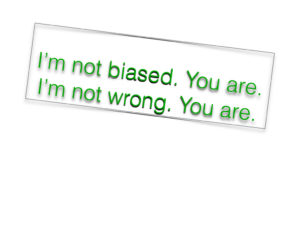A recent situation unfolding in the United States Senate (namely the hearings related to the nomination of Brett Kavanaugh for Supreme Court) have consumed our attention, outrage and thoughts for many weeks.
Polls suggest that while almost 60% of Americans find the accuser credible, most Americans also believe there should be some additional corroborating evidence to support her claim. The lack of the evidence, as well as the accuser’s memory, decades of silence her political bias, timing of the claims, and her training in psychology make the allegations all the more untenable, according to sum.
While others understand the timing (he wasn’t a Supreme Court nominee before), holes in memory (one cannot recall every detail of a day 35 plus years ago) and reason for silence (fear, embarrassment, pain).
But it isn’t my goal to outline, rehash or even re-draw the lines on this debate. Rather, it is my goal to use this very public discussion to make a difficult point. The point, is that I no longer believe the Justice System is Just.
Let me tell you a story –
62 year old woman lives Virginia. She and her husband of 20+ years create a retirement goal and plan, hoping to quit work at age 65. Woman experiences incredible abdominal pain and reaches out through hospital communication portal “MyMedicalChart.com” to seek Doctor’s advice. She says, I can’t diagnose you – go to the hospital. The next day, pain is worse, patient does go to her local hospital. A CT is taken and reflects a possible abdominal tumor, but the ED doctor doesn’t see the report of the tumor. The radiologist doesn’t call anyone about the findings. And the primary care doctor, who told her to go to the hospital, never reads the report. So months go by and no one is doing anything about the tumor. In fact, the only person who knows it’s there is the radiologist and he doesn’t discuss it with anyone, assuming his written report in the chart is enough to get the other doctors moving.
When the tumor is finally diagnosed, the tumor is no longer incapsulated – it has grown, and the cancer is worse. She will now likely die of cancer in the next 1-3 years, whereas had it been diagnosed when the CT was taken, she would have had a better than 50% chance of living 5-10 years.
Now, if people were polled after reading the above scenario, they might come down in one of the following categories:
- Wow. Bad luck but that’s life. She shouldn’t sue over that. Mistakes are made.
- Mistakes were made and people should be held accountable.
- She’s greedy. A lawsuit won’t make her live longer. And she’s almost retired anyway/
- That’s why doctors and hospitals have insurance – to pay valid claims like this one.
- Patient was also at fault, and should have gotten a second opinion.
- All of the doctors are to blame – the radiologist should have called someone and the other doctors should have read the report.
- The primary care doctor is not at fault – she doesn’t have time to read every report – only those the radiologist thinks are really important.
Wow. 7 different opinions from one paragraph?
Or is it 7 different pre-existing opinions that are merely applied to a set of facts?
My experience is the later. It has been my experience as a trial lawyer and litigator – that we the people, (and in this example – the 7 jurors asked to decide a case) are not really capable of being unbiased. We are not completely capable of analyzing a set of facts through a lens other than our existing opinions, life experiences and beliefs.
And it turns out, sometimes even the Judge brings his or her pre-existing beliefs and bias into the Court room. Do we want that? Suffice it to say the answer should be no – unless the judge’s bias matches with our client’s position and then – well – human nature is human nature.
Those of us who believe the Kavanaugh nomination should not have lead to confirmation, are unable to see the perspective of his supporters. Likewise, his supporters do not understand how a mere allegation should curb his nomination.
Imaging asking seven random Americans to sit in a conference room and not leave until they all agree 100% to what happened that evening in July of 1982. Could 7 randomly selected people (none of whom were present) come up with one conclusion that adequately reflects the diversity of opinion? One conclusion that reflects the actual facts?
Seems impossible doesn’t it? And yet – that’s our civil justice system. 7 random strangers have to hear SOME of the evidence, and come to a unanimous conclusion n despite having already formed opinions.
n despite having already formed opinions.
Is that justice?
I don’t think so. And yet – that is the system we have.
